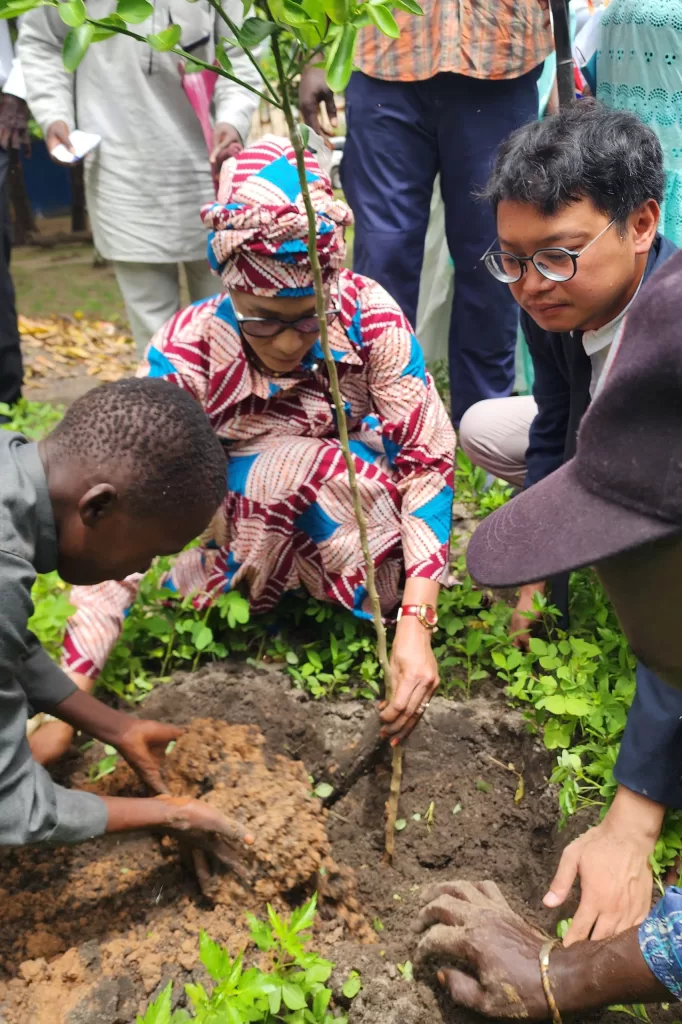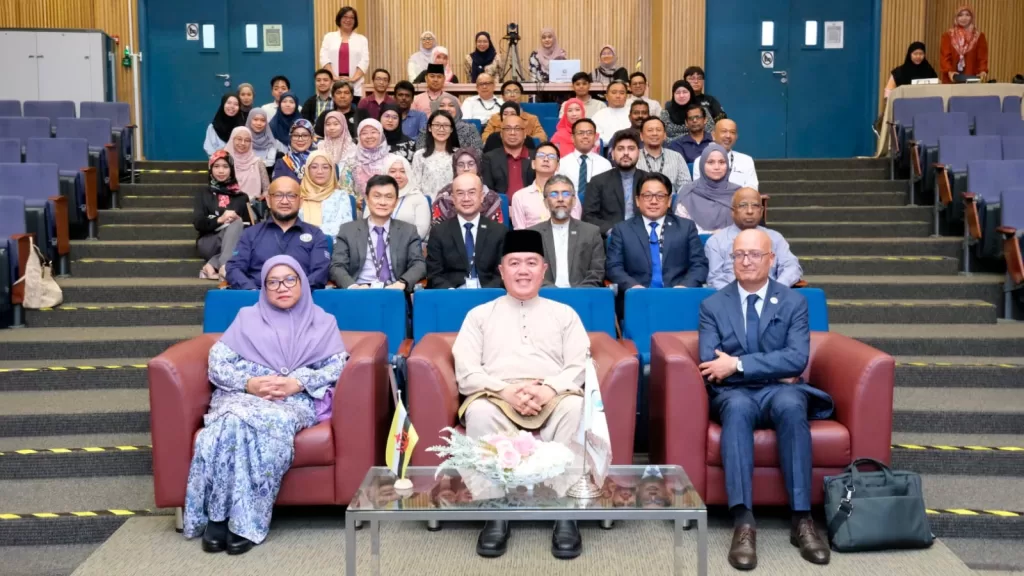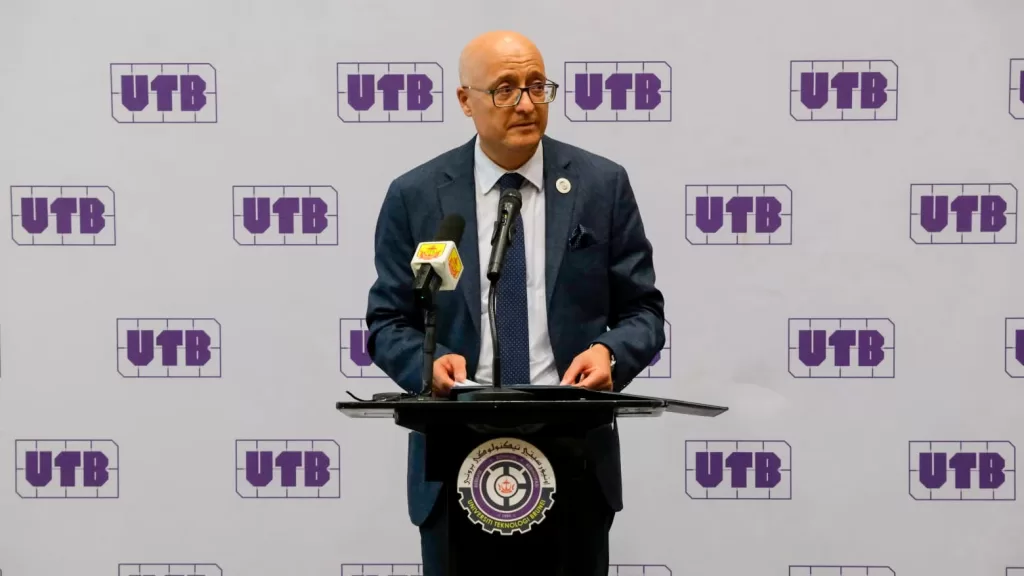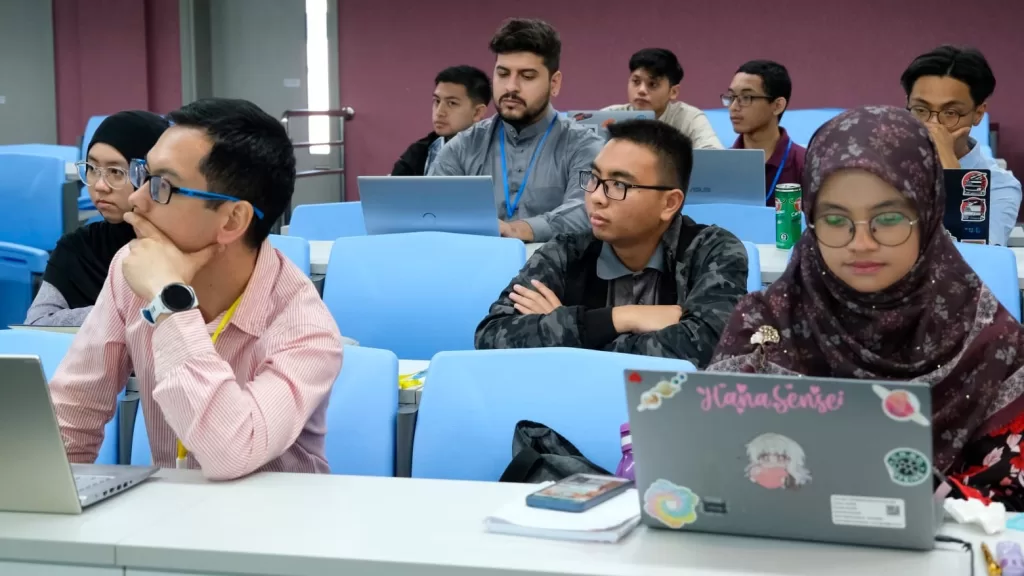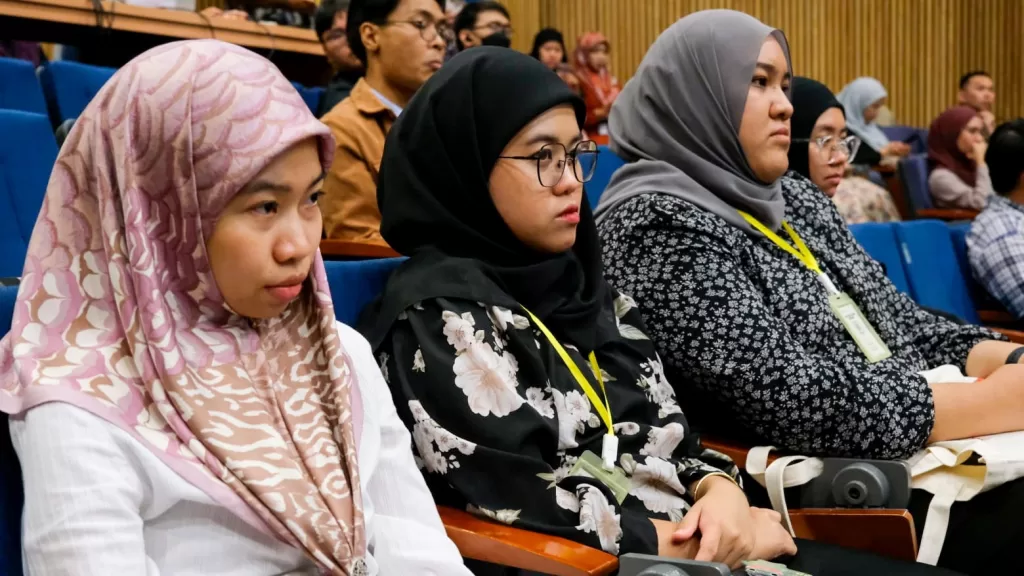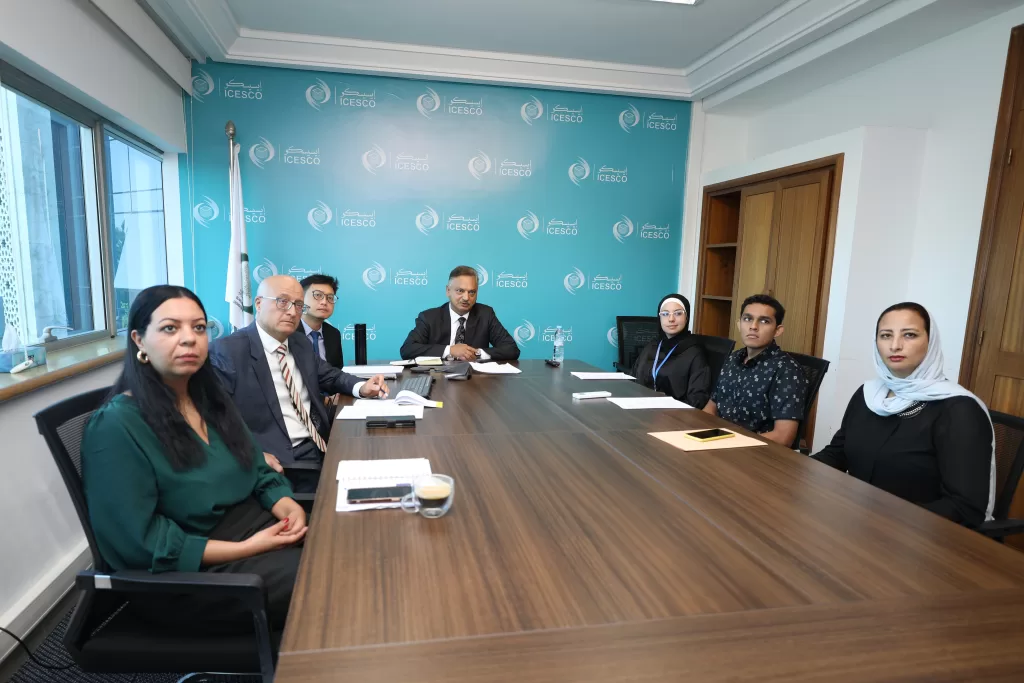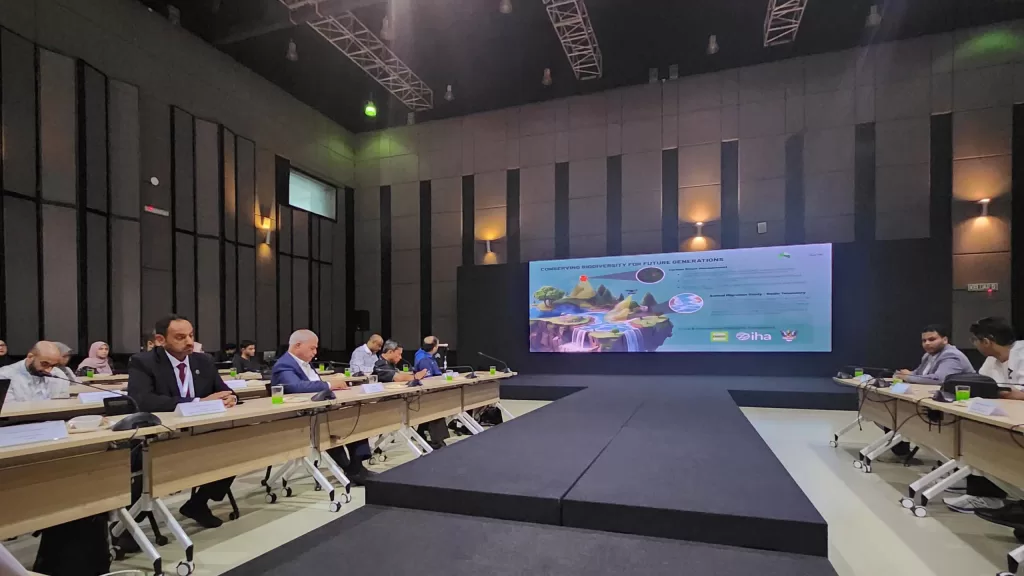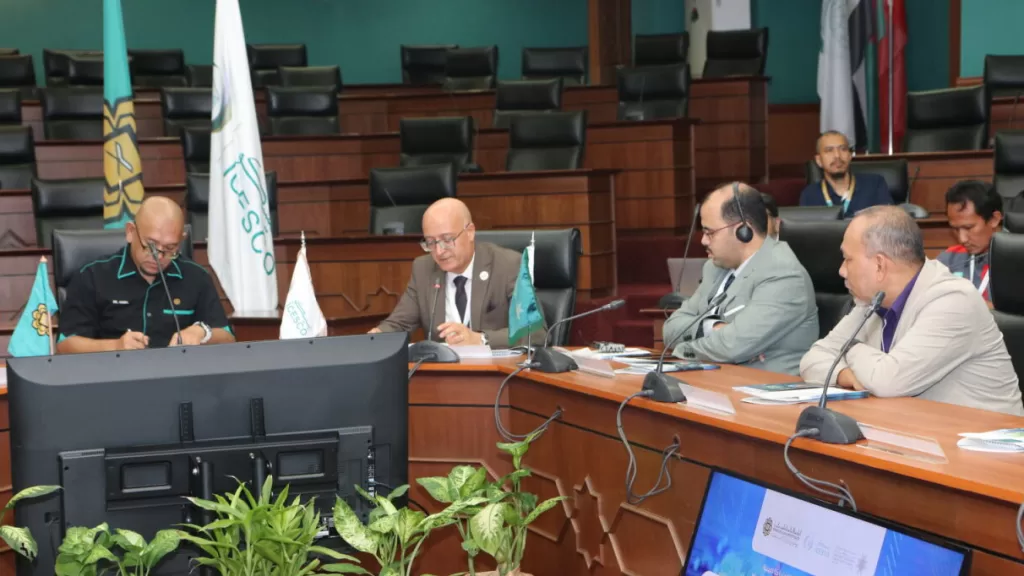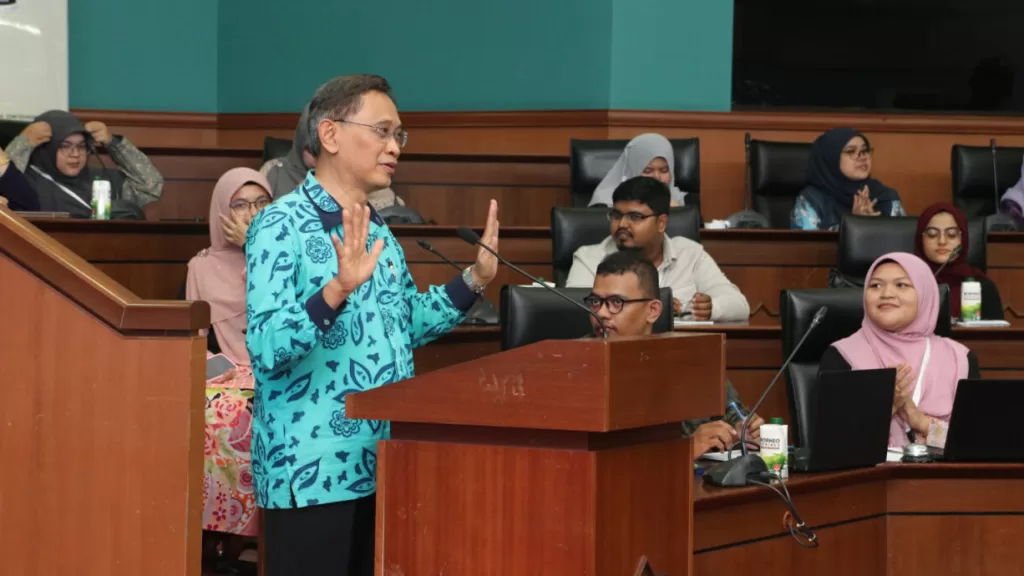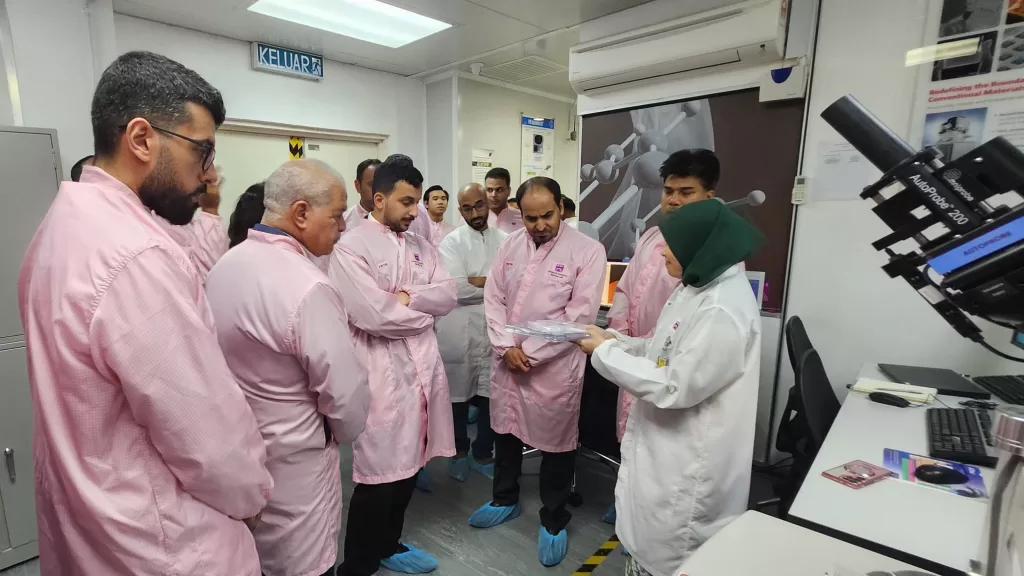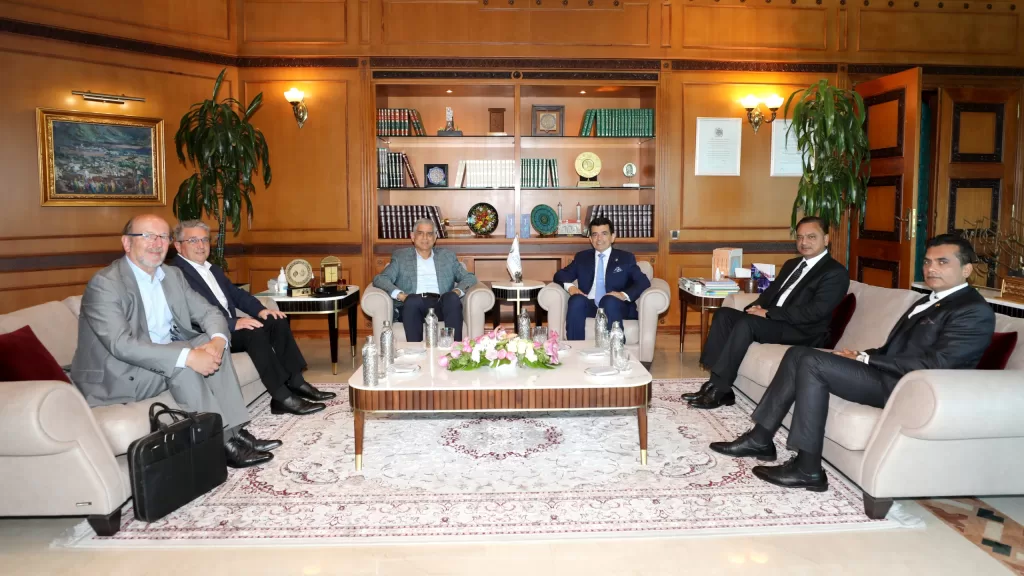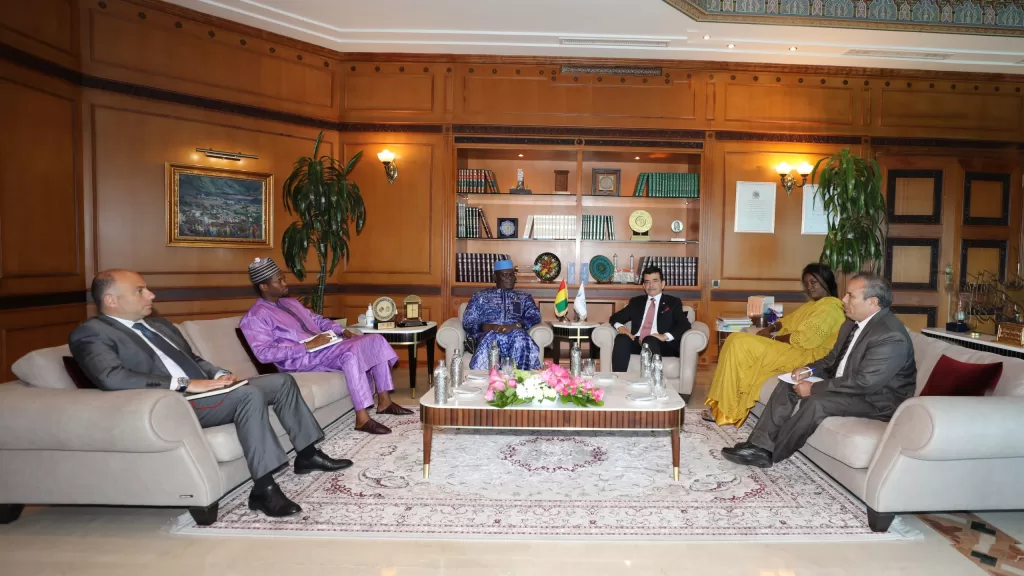In the presence of Ms. Fatoumata Bah Barrow, First Lady of the Republic of The Gambia, the Islamic World Educational, Scientific and Cultural Organization (ICESCO), in partnership with the Gambian National Commission for UNESCO and ICESCO, and the Forestry Department of the Gambian Ministry of Environment, Climate Change and Natural Resources, launched the initiative to produce 10,000 seedlings in the Gambia, as part of the Organization’s ambitious program to produce 500,000 seedlings in the Islamic world.
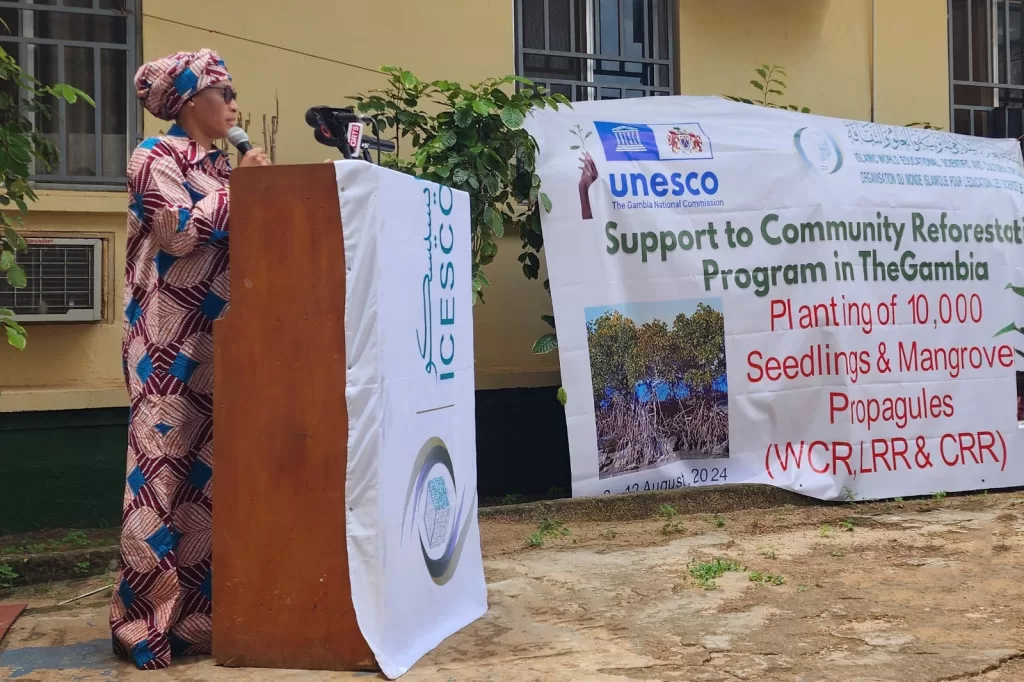
The opening of the launch ceremony of the project, held in Banjul, on Thursday (8 August 2024), saw the presence of a number of high-level figures, officials and specialists in the field of environmental and biodiversity conservation. In his address, Dr. Fahman Fathurrahman, expert at the Science and Environment Sector, reaffirmed the Organization’s commitment to support and protect the environment and sustainable development in Member States, reviewing ICESCO’s efforts and multiple initiatives in the field, aiming to restore degraded ecosystems, enhance natural resources and support sustainable development in rural communities.
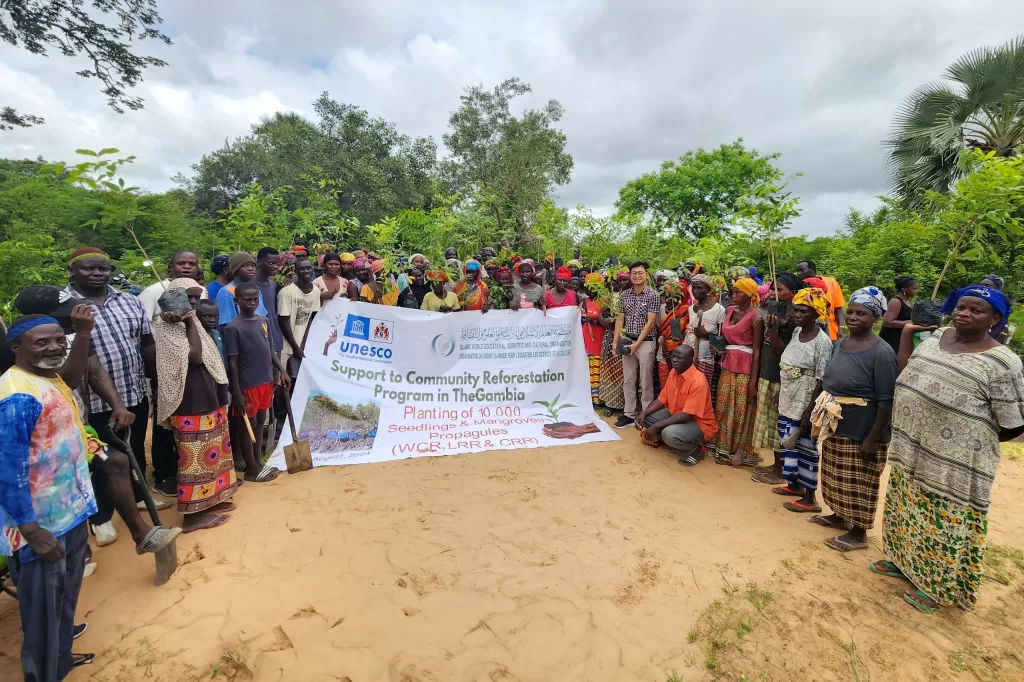
The Gambian version of the project aims to produce 10,000 seedlings, reforest 20 hectares of degraded land spanning three regions in eight communities, distribute mango and orange seedlings, and plant mangrove seedlings in coastal areas to support youth and women in rural areas, contribute to job creation, and strengthen local ecosystems.
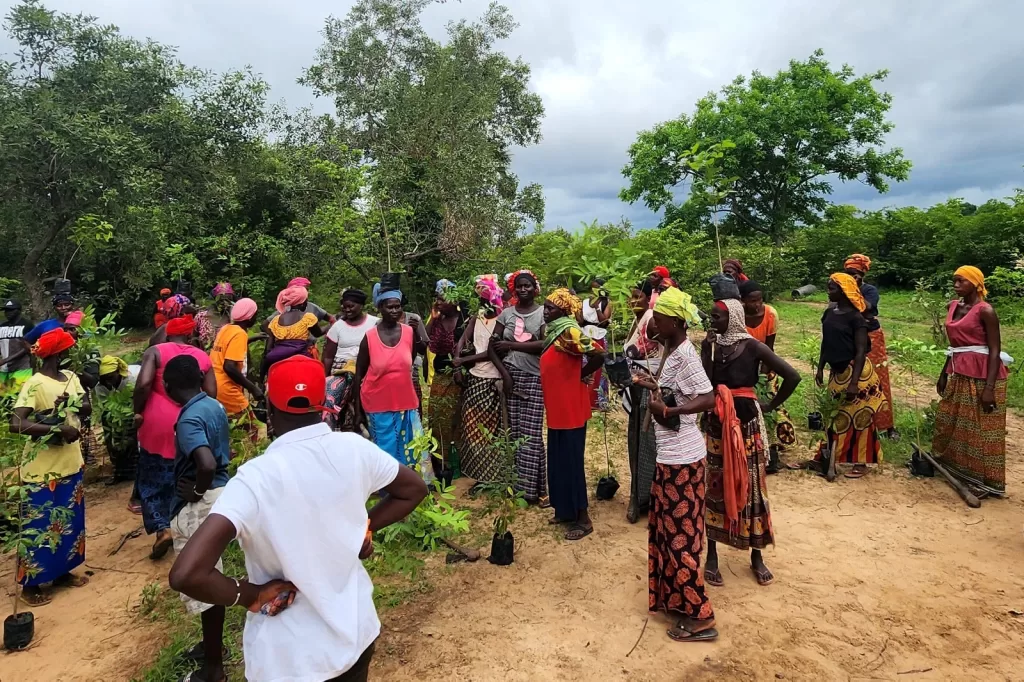
It is worth mentioning that the project has achieved great success in Mauritania and Togo, planting 40,000 seedlings of different varieties and reforesting 85 hectares of degraded land.
